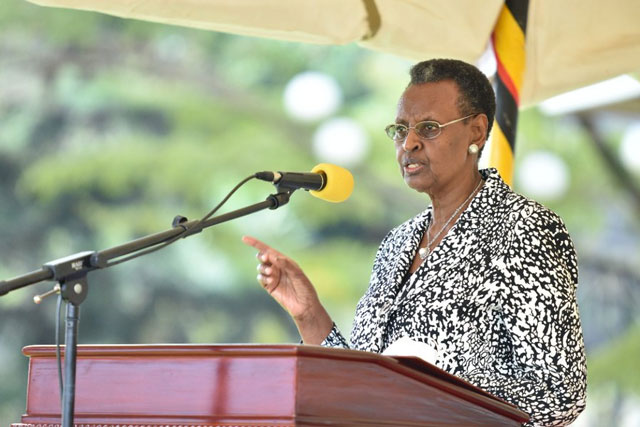
Kampala, Uganda | THE INDEPENDENT | District Education Officers and headteachers have welcomed the ongoing efforts by the Ministry of Education to decentralize secondary education. They argue that the move will improve service delivery in the sub-sector.
Decentralization is the transfer of certain decision-making power and responsibilities from the central government to local governments. In this sense, the legal, financial, administrative, and political control of institutions is shifted to the local communities, which are led by local councils.
Despite the fact that Uganda announced decentralization of the entire education sector decades ago, it appears that policy has been effective at the primary level, leaving the central government controlling secondary education.
Aminah Mutesi, the Jinja City Education Officer says that until now, the District Education Officers – DEOs have been having limited roles to play in secondary education. Mutesi says that at times, DEOs have been undermined by secondary school headteachers who didn’t recognize them as their supervisors leading to a tense working environment.
With few roles given, several education officers in local governments had literally given up on following up on any matter at secondary schools. As a result, these schools have been receiving less inspection than the primary schools which are directly and regularly inspected by the district authorities.
Mutesi attests that overseeing secondary education has been a challenge. She explains that one of the factors that made the relationship intense is the fact that local governments had no role in hiring, sanctioning, firing, and paying teachers and headteachers at the secondary level.
At the primary level, local government authorities have the full grip on the sector controlling everything at the schools.
Alfred Kyaaka, the Assistant Commissioner of government secondary education, says to bridge the gap and improve service delivery, they are slowly giving more authority to local governments.
Kyaaka says that some of the benefits which are foreseen with the decentralization of secondary education include boosting the level of monitoring since there would be physical proximity of local governments, improving financial accountability and planning of schools, and refocusing actions and plans giving local priorities.
Although DEOs claim that the centralized mode was favoring headteachers, Stella Nambozo, second vice-chairperson of the Association of Secondary School Headteachers in Uganda-ASSHU, notes that the shift in administration and management of secondary education will eliminate unnecessary bureaucratic channels they have been experiencing.
Nambozo says under the new arrangement when they get challenges as individuals or as a school, they are handled more quickly than in the past when one had to travel to the Ministry of Education headquarters to handle minor issues like missing salaries.
Patrick Angola, the Obongi District Education Officer says that with a few changes made, many headteachers think there are still under the central government. Angola adds that as DEOs, they are trying to assert their newly given authority.
The education officers interviewed noted that as the government scales down the authority of managing the secondary education sub-sector, they would like to be allowed to handle disciplinary issues and teacher transfers.
Mutesi notes that these functions are still at the centre handled by the Education Service Commission. She adds that the commission in many instances drags its feet without handling issues referred to them yet many are urgent.
Meanwhile, Kyaaka says that although they are on a steady path of decentralization, the ministry lacks a delivery model through which the central government can work effectively with the local government.
*****
URN
 The Independent Uganda: You get the Truth we Pay the Price
The Independent Uganda: You get the Truth we Pay the Price


